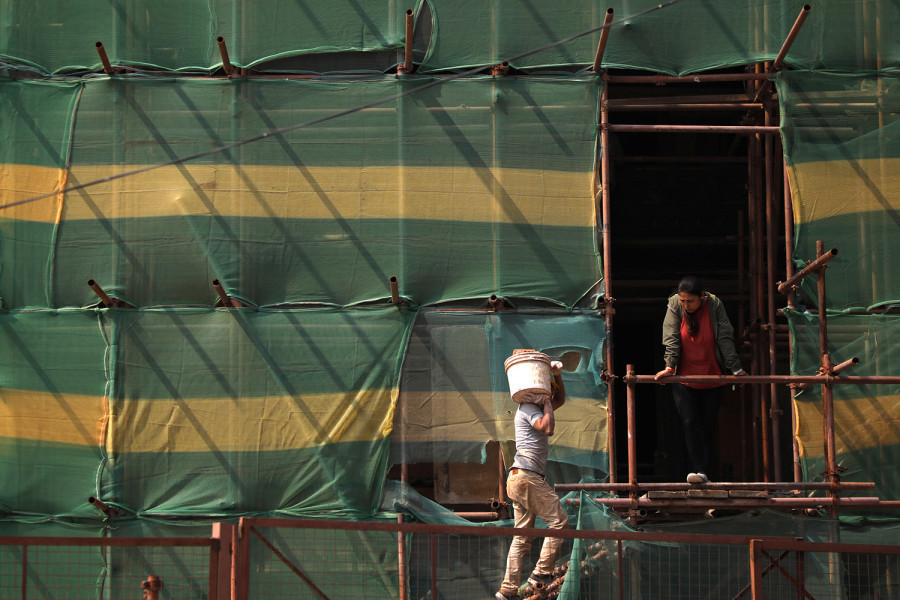Editorial
Time to talk turkey
Address the warnings beforehand to stop an unemployment pandemic.
If Nepal needed a nudge, the fresh warning by the Asian Development Bank is it.
In its latest report released on Monday, the Manila-based lender said remittances across the world could decline by over $100 billion this year as job losses mount and employers trim payrolls amid the pandemic that has exposed the fault lines in health systems and economies around the world.
Asia, where about a third of migrant workers worldwide come from, could see remittance fall by $54.3 billion in a worst-case scenario, the report says. 'More severe' effects will be felt where the share of remittances to the gross domestic product and per capita remittances are high along with major migrant origin countries such as Nepal and the Philippines, the report warns.
In the worst-case scenario, Nepal could see an estimated loss of $2.32 billion based on the 2018 World Bank baseline data, when Nepali migrant workers sent home $8.29 billion. The worst-case scenario assumes that the pandemic is contained domestically and that economic activities resume within a year. However, there is no certainty as to how soon the economy can return to normal as Covid-19 cases continue to spike after the relaxation and lifting of the lockdown.
The money sent by Nepali migrant workers is equivalent to around 27 percent of the country’s gross domestic product. What has been clear from the start is that a global recession in the wake of the pandemic would directly impact Nepal’s flow of remittance, and there would be a decline in outmigration. But the government has failed to take cognisance of the situation that continues to deteriorate by the day.
Dismissive attitudes, given the recent rebound in remittance figures from mid-May to mid-June to put off previous warnings of a slump, could be costly if we see current developments with a myopic eye. While the data from the next few months will give us telling figures, it is understandable that the drop in remittances from mid-March to mid-April coincided with lockdown measures both at home and in destination countries.
Pinning on China’s oil demand for a demand for workers in destination countries could be a comfortable cushion to lean on and diverge issues at hand, but labour researchers have long made it clear that the dip in oil prices below $40 per barrel by the end of 2015 saw a decline in remittance from oil-producing countries. The pandemic, needless to say, has further suppressed global demand for oil causing an additional blow in destination countries which are major hosts to Nepali migrant workers.
The Migration in Nepal report estimates over 400,000 Nepali migrant workers in Qatar, followed by Saudi Arabia 334,451, the United Arab Emirates 224,905 and Kuwait seventy thousand. An estimated 500,000 Nepalis also work in Malaysia, and some 3 to 4 million Nepalis are employed in India. With economies taking a direct hit, a significant number of Nepali migrant workers are out of a job, and they are not likely to be employed anytime soon. Labour researchers say it could take two to three years for the situation to normalise, and the government should be on its toes to handle the returning migrant workers.
The latest warning also adds that newly recruited migrants and those who were on vacation at home face bleak prospects of losing their jobs. Already, the new batch of Nepali migrant workers bound for the Republic of Korea and Qatar have been asked to put off their departures until further notice. If the government doesn’t address these multiple warnings beforehand, it could be too late to stop an unemployment pandemic, which will push the country further into chaos and poverty.
It’s time to talk turkey.




 18.12°C Kathmandu
18.12°C Kathmandu














